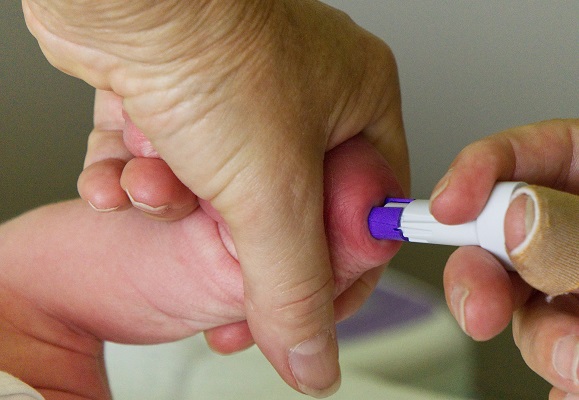When you earn a master’s degree in nurse-midwifery – one of the highest-paying master’s degrees – you probably expect to take care of pregnant and laboring women and deliver babies. What you might not expect is that your relationship with the patient can continue on even after the baby is born. Midwives provide postpartum care immediately after birth and in the weeks that follow. They may take care of the newborn as well as the mother over the baby’s first few weeks of life. Because midwives are trained to provide care beyond maternity services, they may also perform routine gynecological care and primary care services.
Provide Postpartum Care and Support
IMAGE SOURCE: Pixabay, public domain
Although the birth of the baby is a big deal, the ordeal of labor and delivery isn’t over just yet. The midwife also has to deliver the placenta, the organ that develops throughout pregnancy and passes nutrients to the baby. If the patient is hemorrhaging, or bleeding more than normal, the nurse-midwife must manage this complication to prevent a potentially life-threatening loss of blood. If the mother sustained tears during childbirth, the midwife should apply a local anesthetic to numb the area and carefully stitch any large tears. The midwife can advise the patient on how to care for any sutured wounds to prevent infection, promote healing and reduce pain and discomfort.
Recovering from childbirth can be physically painful as well as emotionally difficult. Midwives help mothers manage their physical pain and assess potential signs of postpartum depression and anxiety, according to Penn Medicine. Although they are not therapists, psychologists or psychiatric nurse practitioners, nurse-midwives can provide non-clinical emotional support, screen for signs of postpartum depression and act as a resource connecting mothers to clinical mental health providers.
Midwives continue to provide care to the mother in the weeks that follow the birth. In some cases, midwives will come to the patient’s home for visits in the first couple of weeks after birth.
Care for the Newborn and Assist With Breastfeeding
Throughout pregnancy and birth, you might say that the nurse-midwife has two patients: the mother and the baby. After the baby is born, the midwife may provide some care to the baby, as well. Although plenty of newborns go straight to the pediatrician’s office for their early medical checkups, midwife care is also an option. Many Certified Nurse-Midwives care for babies up to 28 days of age.
Midwives also care for babies in indirect ways through educating and supporting new parents. Part of a midwife’s job after the baby is born may be to instruct the proud parents, especially first-time parents, on how to care for an infant. If a mother is breastfeeding, her midwife might be involved in teaching her techniques and positions to try for success, answering questions and assisting with any problems that arise. Although not a lactation consultant specifically, midwives
Although breastfeeding is natural, it doesn’t always come easy to new mothers and their babies. Two-thirds of mothers struggle to exclusively breastfeed for their intended duration, according to research published in the journal Pediatrics.
Provide Well-Woman Care and Primary Care for Female Patients
Patients who like their midwife may continue to use this provider for their primary care and reproductive care needs. In fact, some master’s degree programs in nurse-midwifery also meet the criteria for a provider to become certified as a women’s health nurse practitioner.
More than half of Certified Nurse Midwives and Certified Midwives spend most of their time not attending births but rather providing reproductive care, according to the American College of Nurse-Midwives. This role includes performing annual gynecological checkups, diagnosing and treating sexually transmitted infections and assisting with family planning and prescribing birth control. Nurse-midwives may also prescribe and manage hormone replacement therapy to relieve menopause symptoms.
Nearly one-third of Certified Nurse Midwives and Certified Midwives consider providing primary care services to women to be their primary work responsibility. As primary care providers, nurse-midwives may perform routine annual exams, advise patients on nutrition and educate patients on other health matters.
Most of a midwife’s work revolves around taking care of women, but midwives may treat men. Treating male partners of their female patients for sexually transmitted infections is part of a midwife’s scope of practice, the American College of Nurse-Midwives reported.
Additional Resources
Would I See a Midwife If I’m Not Pregnant?

